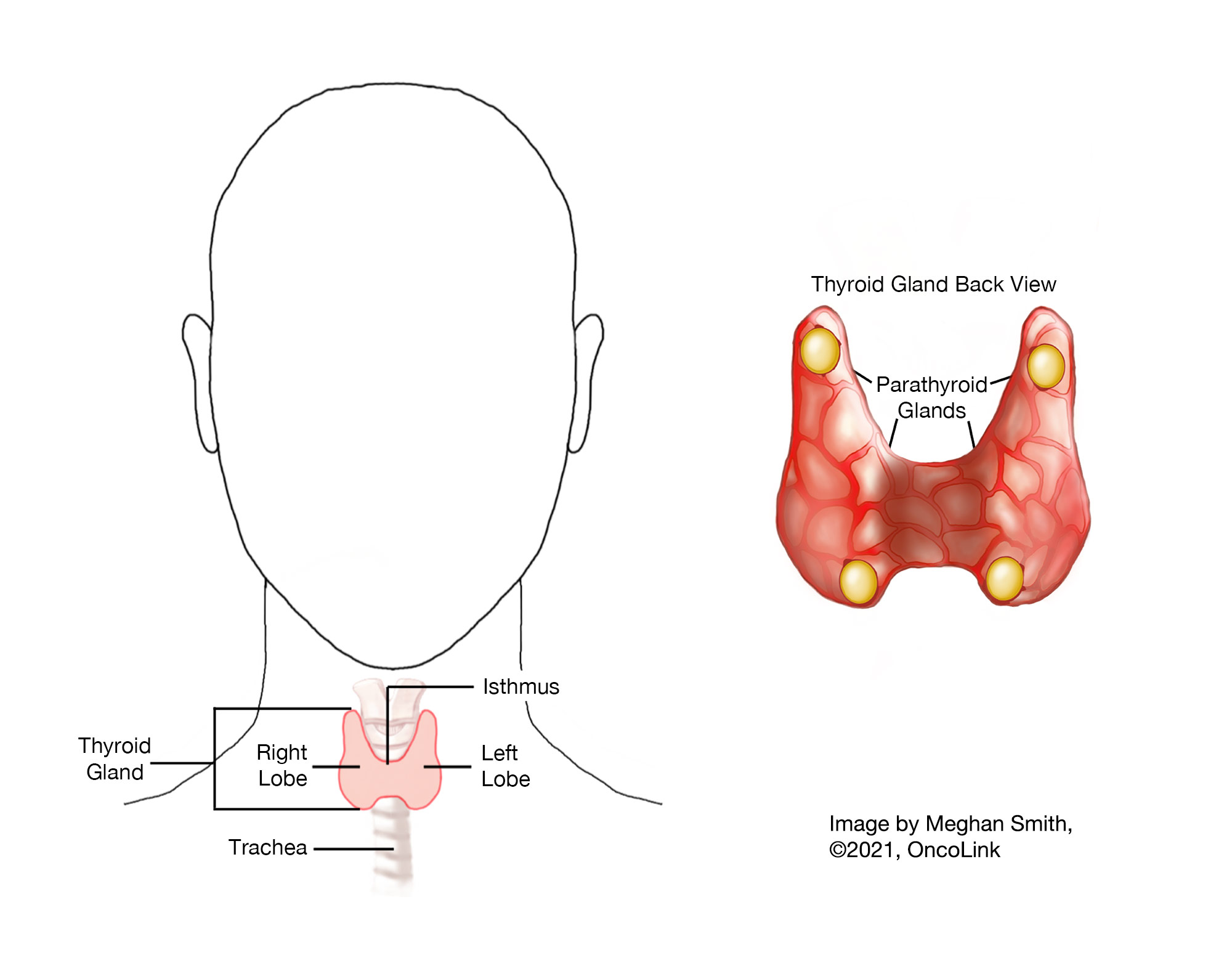Parathyroid Cancer: Staging and Treatment
Table of Contents
What is staging for cancer?
Staging is the process of learning how much cancer is in your body and where it is. Tests like blood tests, a physical exam of your neck, and a Sestamibi/SPECT scan (a type of CT scan and a biopsy) may be done to help learn about your parathyroid cancer. Your providers need to know about your cancer and your health so that they can plan the best treatment for you.
How is parathyroid cancer staged?
Unlike other cancers, there is no standard staging system for parathyroid cancer. After testing is done, your team may refer to the cancer as:
- Localized (kept to one area), or
- Metastatic (spread to areas away from the original tumor).
How is parathyroid cancer treated?
Treatment for parathyroid cancer depends on many things, like your cancer stage, age, overall health, and testing results. Your treatment may include:
Surgery
Surgery is the main treatment for parathyroid cancer. There are three types of surgery that may be used:
- En bloc resection: A surgery to remove the whole abnormal parathyroid gland and the capsule around it. In some cases, lymph nodes, half of the thyroid gland on the same side of the body as the cancer, muscle, tissue, and nerves in the neck are also removed.
- Tumor debulking: Sometimes the whole tumor cannot be removed. Tumor debulking removes as much of the tumor as possible.
- If the cancer has spread to other areas of the body (metastasized), a surgical procedure may be done to remove the tumors in other organs in the body, such as the lung.
Your team will talk to you about your best option for surgical treatment. Surgery for parathyroid cancer can sometimes affect the nerves of the vocal cords. If damage to the vocal cords happens, you may need treatments to help with speech problems.
Radiation Therapy
Radiation is the use of high-energy x-rays to kill the tumor. The type of radiation used for parathyroid tumors is called external beam radiation therapy. Radiation can be used to treat parathyroid cancer that is localized (is in one spot), metastatic(has spread to other parts of the body), or recurrent (came back after treatment). You and your care team will decide if radiation is needed to treat your parathyroid cancer.
Chemotherapy
Chemotherapy is medication that travels through the bloodstream and body to kill cancer cells. Chemotherapy is not often used to treat parathyroid cancer because it does not work very well for this type of cancer. In some cases of metastatic and recurrent parathyroid cancer, chemotherapy is used when surgery can’t be done. There is no standard chemotherapy regimen used for parathyroid cancer. These are some of the chemotherapy medications that may be used, either alone or in combination to treat parathyroid cancers:
Dacarbazine (DTIC).
Clinical Trials
You may be offered a clinical trial as part of your treatment plan. To find out more about current clinical trials, visit the OncoLink Clinical Trials Matching Services.
Making Treatment Decisions
Your care team will make sure you are a part of choosing your treatment plan. This can be overwhelming as you may be given a few options to choose from. It feels like an emergency, but you can take a few weeks to meet with different providers and think about your options and what is best for you. This is a personal decision. Friends and family can help you talk through the options and the pros and cons of each, but they cannot make the decision for you. You need to be comfortable with your decision – this will help you move on to the next steps. If you ever have any questions or concerns, be sure to call your team.
You can learn more about parathyroid cancer at OncoLink.org
